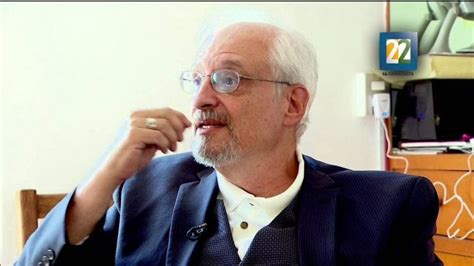A Quote by Albert Einstein
The fact that man produces a concept "I" besides the totality of his mental and emotional experiences or perceptions does not prove that there must be any specific existence behind such a concept. We are succumbing to illusions produced by our self-created language, without reaching a better understanding of anything. Most of so-called philosophy is due to this kind of fallacy.
Quote Topics
Any
Anything
Behind
Besides
Better
Concept
Created
Does
Due
Emotional
Emotional Experiences
Existence
Experiences
Fact
Fallacy
His
Illusions
Kind
Language
Man
Mental
Most
Must
Our
Perceptions
Philosophy
Produced
Produces
Prove
Reaching
Self
So-Called
Specific
Succumbing
Totality
Understanding
Without
Related Quotes
Central to Jungian psychology is the concept of "individuation," the process whereby a person discovers and evolves his Self, as opposed to his ego. The ego is a persona, a mask created and demanded by everyday social interaction, and, as such, it constitutes the center of our conscious life, our understanding of ourselves through the eyes of others. The Self, on the other hand, is our true center, our awareness of ourselves without outside interference, and it is developed by bringing the conscious and unconscious parts of our minds into harmony.
The absurd man will not commit suicide; he wants to live, without relinquishing any of his certainty, without a future, without hope, without illusions … and without resignation either. He stares at death with passionate attention and this fascination liberates him. He experiences the “divine irresponsibility” of the condemned man.
One of the main jobs of conciousness is to keep our life tied together into a coherent story, a self-concept. It does this by generating explanations of behaviors on the basis of our self image, images, memories of the past, expectations of the future, the present social situation, and the physical environment in which behavior is produced.
Man is naturally self-centered and he is inclined to regard expediency as the supreme standard for what is right and wrong. However, we must not convert an inclination into an axiom that just as man's perceptions cannot operate outside time and space, so his motivations cannot operate outside expediency; that man can never transcend his own self. The most fatal trap into which thinking may fall is the equation of existence and expediency.
The fact is that liberty, in any true sense, is a concept that lies quite beyond the reach of the inferior man's mind. And no wonder, for genuine liberty demands of its votaries a quality he lacks completely, and that is courage. The man who loves it must be willing to fight for it; blood, said Jefferson, is its natural manure. Liberty means self-reliance, it means resolution, it means the capacity for doing without . . . the average man doesn't want to be free. He wants to be safe.
The philosophy of Atheism represents a concept of life without any metaphysical Beyond or Divine Regulator. It is the concept of an actual, real world with its liberating, expanding and beautifying possibilities, as against an unreal world, which, with its spirits, oracles, and mean contentment has kept humanity in helpless degradation.
We urgently need a paradigm shift in our concept of the purposes and practices of education. We need to leave behind the concept of education as a passport to more money and higher status in the future and replace it with a concept of education as an ongoing process that enlists the tremendous energies and creativity of schoolchildren in rebuilding and respiriting our communities and our cities now, in the present.





































